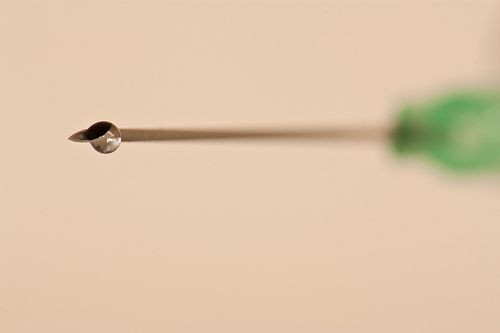Painless Micro-needle Can Monitor Body Chemistry In Real-time

A micro-needle sensor less than one millimeter in size can be used to assist doctors to continuously monitor chemical changes in patient’s body in real-time, according to study, published in journal Talanta.
"We've loaded the hollow channels within micro-needles with electrochemical sensors that can be used to detect specific molecules or pH levels," says Dr. Roger Narayan, co-author of a paper and a professor in the joint biomedical engineering department of NC State's College of Engineering.
Previous monitoring techniques depend on taking samples and testing them. The micro-needle technology is capable of monitoring continuously glucose levels for diabetics, lactate levels for exercising, Ph. levels for body chemistry.
"The idea is that customized micro-needle sensor arrays could be developed and incorporated into wearable devices, such as something like a wristwatch, to help answer specific medical or research questions," Narayan said.
"It's also worth pointing out that micro-needles are not painful," He said.
Researchers say that the micro-needle technology can be modified to monitor a wide variety of chemicals.
Published by Medicaldaily.com



























